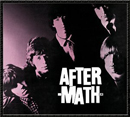Music |
Aftermath
The Rolling Stones
By
Published: Jan 01, 2005
Category:
Rock
The "world’s greatest rock band" has been a parody of itself for so long that even those of us who were around when they earned the title have trouble explaining the Stones to younger friends. The overpriced tours of recent years are exactly what we thought rock’s self-proclaimed "bad boys" would never do — reprise their greatest hits under makeup so thick that Mick Jagger looks like he’s wearing a death mask. Doesn’t he get that it’s time to hang it up — his most recent solo CD that didn’t even sell a thousand copies in England. And the beautifully paneled Connecticut library where Keith Richards stocks his collection of World War II books looks like an excellent place for the guitar guru to sit down and sip Jack Daniels in peace.
As I write, The Stones are releasing Singles 1968-1971 , a lavishly packaged, 10-disc boxed set that just might be a bargain on Amazon at $47.98. I’m sure it’s terrific. But if I want to hear The Rolling Stones at their best, I go back two more years — to 1966, to "Aftermath."
Let me set the scene, so you understand how this CD sits in rock history. Back then, the Big Three were The Stones, The Beatles and Dylan. With each new song, with each album, they challenged one another — a friendly competition that benefited both the musicians and their ever-expanding audience.
The early months of 1966 brought "Revolver" from The Beatles and "Blonde on Blonde" from Dylan — two of the greatest albums ever released. "Aftermath" was a worthy competitor: the first Stones album that featured only songs they wrote, their first album recorded in stereo and the album most influenced by the brilliant but doomed Brian Jones (he’d die two years later).
I’m recommending the English version of "Aftermath" even though it lacks "Paint It Black." The tradeoff: three significant songs not on the American album, a better sound mix, plus you save a few bucks (you’re welcome).
This is the album that saw The Stones move from presenting themselves as an English version of a black Chicago blues band to a pure rock band — this is the start of The Stones as a badass gang whose behavior you can’t predict.
That’s certainly true of the musical mix. You get misogyny in "Under My Thumb" and "Stupid Girl." You get George Harrison-influenced sitar in "I Am Waiting." You get social commentary in "Mother’s Little Helper." A beautiful ballad in "Lady Jane." Hard rockers. And a weird, druggy, 11-minute song called "Going Home" which offers some hints that The Doors would pick up a year or so later.
"Aftermath" is where The Stones first showed the attitude that would blossom over the next few years and insure them of a place among The Immortals. All 14 songs have the feel of classics. You’ll dance in your chair. You’ll smile. You’ll be taken back to a time that was fun and creative — and even innocent. And, at last, you’ll know why they call these tottering pensioners "the world’s greatest rock band."
To buy "Aftermath" from Amazon.com, click here.


